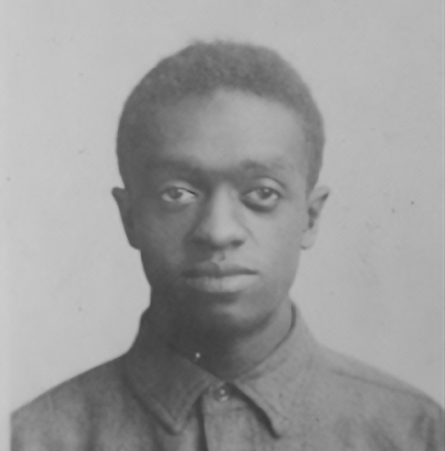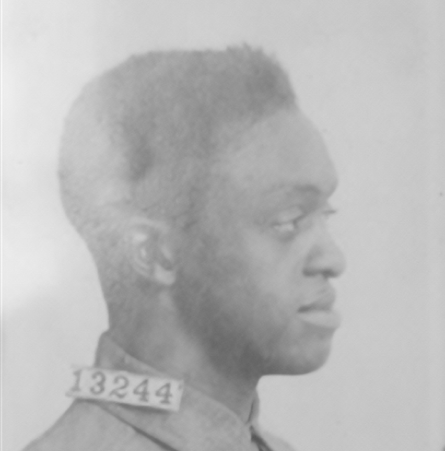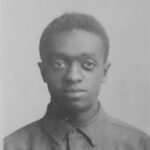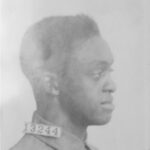Pvt. William L. Dugan
William L. Dugan was born in Ohio in 1892 and was raised in the St. Vincent’s Orphanage in Cleveland from until 1906, when he was 14. Anecdotal information in his record suggested his mother was white, but also stated that he “personally knows nothing of his parents.” He was eventually placed with an adoptive family, but ran away shortly afterward and never returned. He quit school after completing the fifth grade and listed his civilian work experience as farmhand and porter. As a civilian he was arrested once for D&D in 1913 in Cleveland; after enlisting in 3/24 Infantry in 1914 he accrued three SCM on his disciplinary record for Drunk & Disorderly. The SCM is ordinarily used to dispose of relatively minor offenses where nonjudicial punishment (Article 15/Captain’s Mast) is not considered severe enough.
The prison record says that Dugan stated he was not guilty of charges associated with the mutiny, but had refused to testify on his own behalf. It included the opinion, “When this man was being questioned regarding his history, the examiner was under the impression that he was untruthful in his statement.” When the clemency board first considered his case in 1920, they concluded, “From the evidence of the man before us his lack of willingness to explain his whereabouts, the opinion is formed that he must have been guilty of actual participation in the shooting, etc. No clemency is recommended. The prisoner received every encouragement to state anything to us which he desired to in his own interest.” When he was next considered for clemency in 1922 the board concluded, “Denies that he was in the rioting. States that he is not guilty, but will give no statement as to his whereabouts during the trouble. Expecial [sic] pains were taken to explain conditions to this man but he remained fixed in his attitude. Conduct during confinement is reported as excellent.” By 1923, however, the Warden of the Penitentiary reported that Dugan “has been guilty of two violations of the prison regulations,” but did not specify what those infractions were.
When his case was reviewed again in April 1924, the AG report stated that Dugan was uncooperative on his own behalf; “He says he does not care to talk about his case; claims he did not get justice; that the witnesses were coached; and he denies his guilt.” Even so, the AG recommended that his life sentence be remitted to 30 years. By that point his conduct in prison was classified as “excellent,” so whatever the aforementioned violations were, they must have been minor.
In a very interesting coda to Dugan’s case, on 13 January 1958 the Acting Chief of the Correction Division at Leavenworth wrote him a letter. By that time Dugan was out of prison and living in Houston (it would be very interesting to find out what compelled him to go back to Houston, of all places). He would have been 66 years old then. The letter stated: “Dear Mr. Dugan: The records of the Department of the Army show that you escaped while on parole from the United States Disciplinary Barracks, Fort Leavenworth, Kansas, with an unsatisfied sentence to confinement. In closed [sic] is an official communication announcing remission of the unexecuted portion of your sentence to confinement. As a result of this action, you are no longer wanted by the military authorities.”



